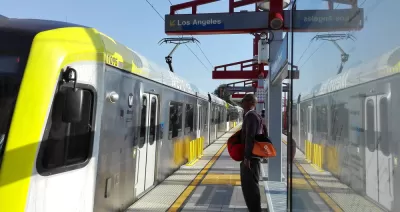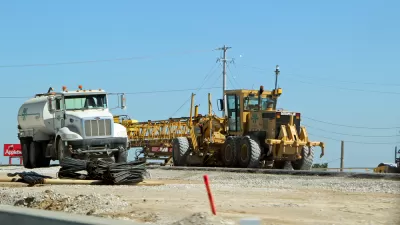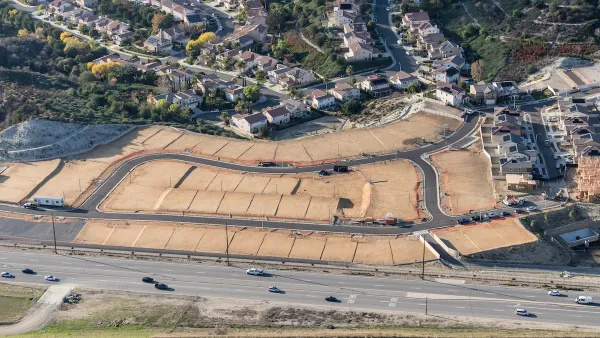A 2020 law that exempts transit, bike, and pedestrian projects from California's strict environmental review process could become permanent.

A proposal from California Senator Scott Wiener could make permanent a 2020 law that exempts certain transit projects from environmental review in order to accelerate the construction process for public transit, reports Jerold Chinn.
The current proposal would extend Senate Bill 288, which expires in 2023 and exempts transit, bike, and pedestrian safety projects from California Environmental Quality Act (CEQA) review. According to Wiener, the bill supports "sustainable, climate friendly, transportation projects" that often get delayed for years by environmental review. "We need to make our streets safer yesterday. Not in a year, not in five years, not after seven years of appeals and lawsuits. Now," said Wiener.
Jeffrey Tumlin, the San Francisco Municipal Transportation Agency’s director of transportation, praised the bill for its ability to streamline projects and, for example, allow the agency to quickly re-stripe traffic lanes for buses.
Designed to assess the environmental impacts of new projects, CEQA often receives criticism for causing significant delays in the construction of projects like affordable housing developments. Recently, a lawsuit brought by a neighborhood group called for the University of California, Berkeley to reduce its planned enrollment for next fall because they did not conduct a new environmental review taking into account a larger freshman class.
FULL STORY: Permanent exemption for environmental review sought for California transit projects

Maui's Vacation Rental Debate Turns Ugly
Verbal attacks, misinformation campaigns and fistfights plague a high-stakes debate to convert thousands of vacation rentals into long-term housing.

Planetizen Federal Action Tracker
A weekly monitor of how Trump’s orders and actions are impacting planners and planning in America.

Chicago’s Ghost Rails
Just beneath the surface of the modern city lie the remnants of its expansive early 20th-century streetcar system.

Bend, Oregon Zoning Reforms Prioritize Small-Scale Housing
The city altered its zoning code to allow multi-family housing and eliminated parking mandates citywide.

Amtrak Cutting Jobs, Funding to High-Speed Rail
The agency plans to cut 10 percent of its workforce and has confirmed it will not fund new high-speed rail projects.

LA Denies Basic Services to Unhoused Residents
The city has repeatedly failed to respond to requests for trash pickup at encampment sites, and eliminated a program that provided mobile showers and toilets.
Urban Design for Planners 1: Software Tools
This six-course series explores essential urban design concepts using open source software and equips planners with the tools they need to participate fully in the urban design process.
Planning for Universal Design
Learn the tools for implementing Universal Design in planning regulations.
planning NEXT
Appalachian Highlands Housing Partners
Mpact (founded as Rail~Volution)
City of Camden Redevelopment Agency
City of Astoria
City of Portland
City of Laramie





























